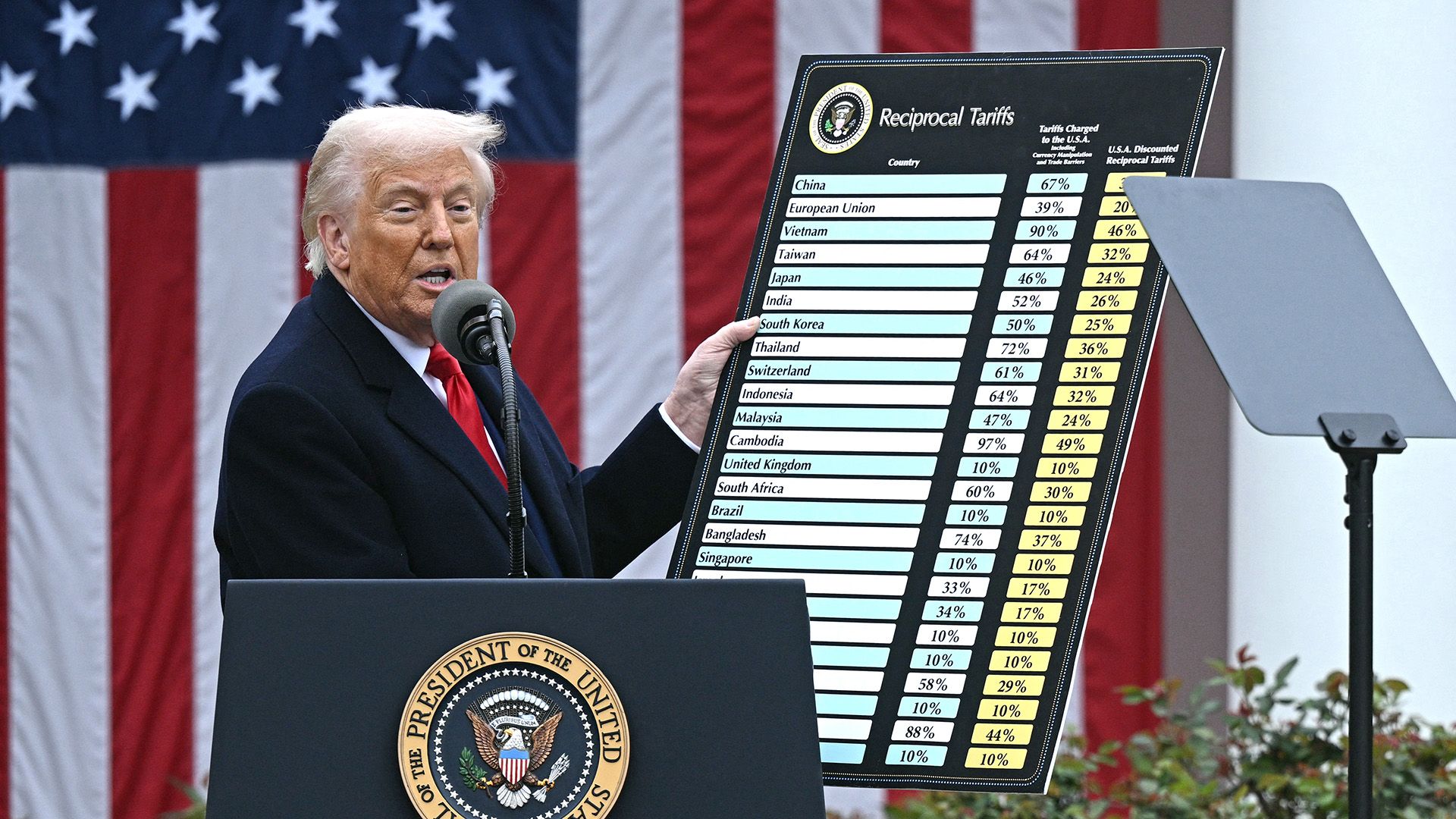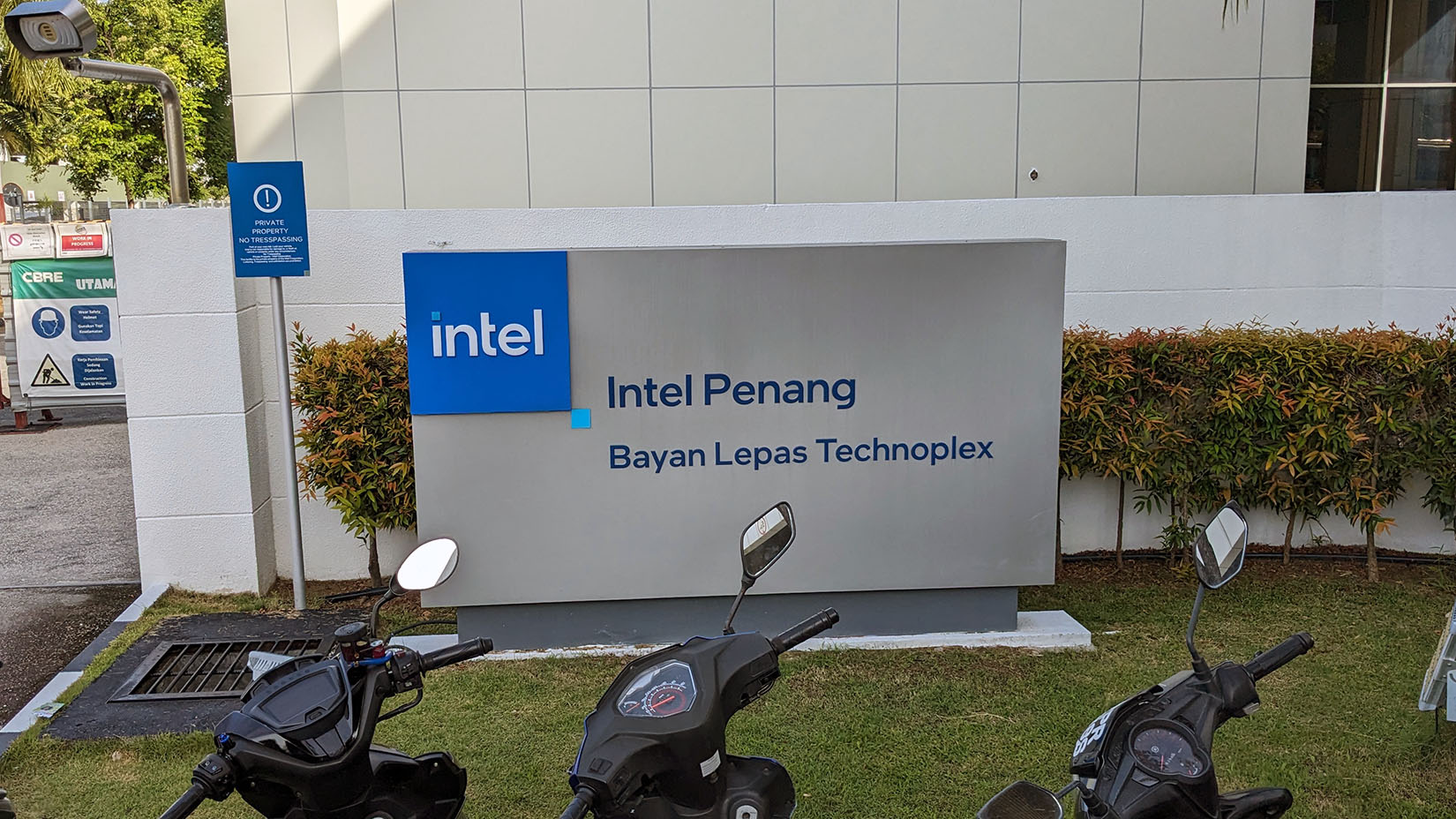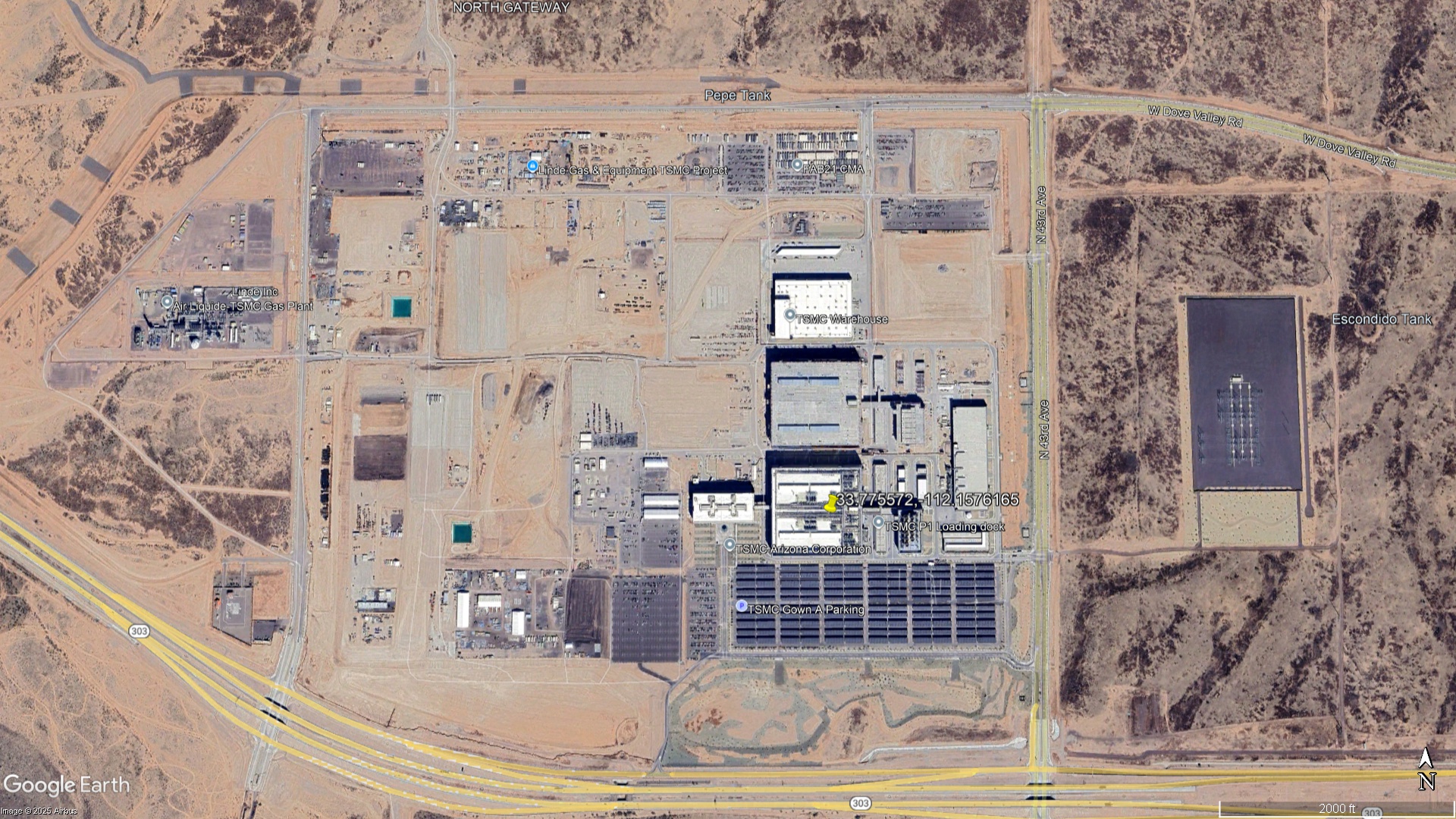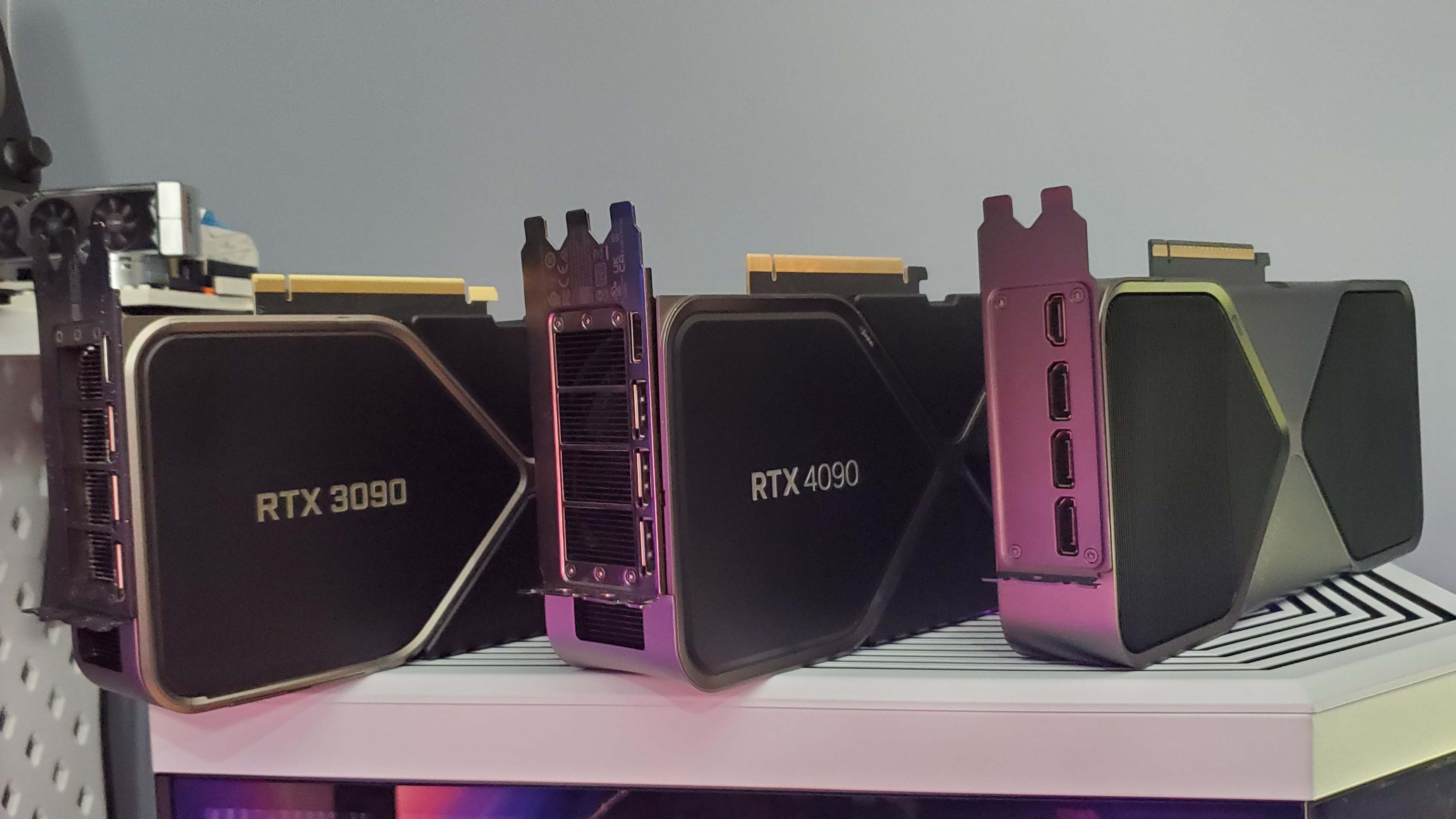Semiconductors are exempt from Trump's massive 32% tariff on Taiwan though PC gamers will still feel the heat
President Trump says TSMC is "one of the great companies of the world" as he praises the chipmaker for investing in the US. But other companies are not so lucky.

The Trump administration announced sweeping "reciprocal" tariffs across the globe, ranging from a 10% baseline tariff on most countries to 30% or more on countries like Thailand (36%), Vietnam (46%), Cambodia (49%!), and Taiwan (32%). That last one might ring alarm bells for anyone wise to the global trade in semiconductors, as you'll know it's dominated by one company, TSMC, or the Taiwanese Semiconductor Manufacturing Company, which produces most of its chips in (surprise!) Taiwan.
TSMC makes most of the cutting-edge chips in use today, including those found in iPhones, as well as AMD, Nvidia, and Intel processors, including many GPUs and CPUs.
Trump announced his tariffs holding a placard at an event in the White House gardens. This was perhaps a poor choice of location as Trump joked about the wind blowing his signage around. Still, he held on tight and went through the tariffs that he claims many countries impose on the US, and the reciprocal tariffs the US would impose in return. Most of which begin April 5, though the larger tariffs go into place on April 9.
There wasn't room on Trump's placard to get into the details, however. Those came shortly after in fact sheet published by the White House.
This fact sheet outlines the incoming tariffs, which will be paid by US companies on importing foreign-made products and materials into the country, and why the US is now choosing to roll them out. It states that President Trump "believes that tariffs are necessary to ensure fair trade, protect American workers, and reduce the trade deficit."
The fact sheet also states that there are some exceptions to the tariffs, and some of these are a pretty big deal.
Semiconductors are exempt from tariffs, as are pharmaceuticals, lumber, bullion, energy, and "certain minerals that are not available in the United States".
The biggest gaming news, reviews and hardware deals
Keep up to date with the most important stories and the best deals, as picked by the PC Gamer team.
So, semiconductors are actually safe from huge tariffs, which would've slapped a whole 32% onto your parts bill in an instant.
Another country of interest for PC gamers is Malaysia, which Intel and AMD both operate plants in for assembly of their products—packaging chips together. Malaysia faces a massive tariff from Trump at 24% on all goods entering the US from April 9. However, with semiconductors dodging tariffs, for now, that could stave off a direct hit on these businesses. Though we'll have to see how this plays out in the long-run, as Trump has threatened 25% semiconductor tariffs in the past.
There is still going to be a squeeze on PC component pricing even with this key exclusion, and that's because PC parts are made, moved, and packaged in various places the world over. When a semiconductor is manufactured and then packaged into a separate system, it could be subject to a different tariff without exemption, i.e. within an add-in card, computer or server rack. That will see prices going up as these companies import parts and systems into the US.
Servers especially are being singled out as at risk for price hikes due to tariffs.

China has been hit with some of the largest cumulative tariffs by the US administration in recent months, amounting to a rate of some 54%. These tariffs have already led to some companies, such as ASRock and GPU OEM PC Partner, to look to move away from manufacturing in China and to other countries instead, the latter to Singapore. Following the most recent wave of tariffs, which levied a 10% tariff on Singapore among many others, it appears there's nowhere to hide from price hikes.
AMD, Nvidia, and Intel shares all dropped overnight. Ahead of the announcement, AMD CEO Lisa Su said they expected "short-term" impact on chips. TSMC, on the other hand, while hit by the announcement to a slight degree, appears to be on track for only a minor bump in the road. It looks like the company's promise of mass investment in the US has kept it on Trump's good side for now.
TSMC builds some chips in the US already and is looking to increase that capacity in coming years. Helped to set-up in the US, in part, by CHIPS Act funding, and today by increased pressure by Donald Trump, TSMC has agreed to invest $100 billion in the US including three new fabs for manufacturing chips.
AMD is already said to be producing some Ryzen 9000-series chips in its Arizona fab and Nvidia CEO Jensen Huang confirmed his company is doing the same. Though neither is using the most cutting-edge process nodes, which TSMC has previously said would be staying put in Taiwan.


Best CPU for gaming: The top chips from Intel and AMD.
Best gaming motherboard: The right boards.
Best graphics card: Your perfect pixel-pusher awaits.
Best SSD for gaming: Get into the game ahead of the rest.
On Taiwan, Trump said: "They took all of our computer chips and semiconductors. We used to be the king, right? We had everything, we had all of it, now we have almost none of it."
Trump went on to say of TSMC: "Except the biggest company is coming in and we're going to end up with nearly 40%. Lee Zeldin [administrator of the US Environmental Protection Agency] is coming in and we're going to get their approvals and it's an amazing company. Mr Wei, of one of the great companies of the world, coming in from Taiwan and they're going to build one of the biggest plants in the world. Maybe the biggest for that."
With such wide-ranging tariffs on most goods, it's tough to see how any hobby, let alone PC gaming, will avoid price hikes. And those will have an impact for those outside of the US, too, even if US consumers are likely to be footing most of the bill directly.

Jacob earned his first byline writing for his own tech blog. From there, he graduated to professionally breaking things as hardware writer at PCGamesN, and would go on to run the team as hardware editor. He joined PC Gamer's top staff as senior hardware editor before becoming managing editor of the hardware team, and you'll now find him reporting on the latest developments in the technology and gaming industries and testing the newest PC components.

